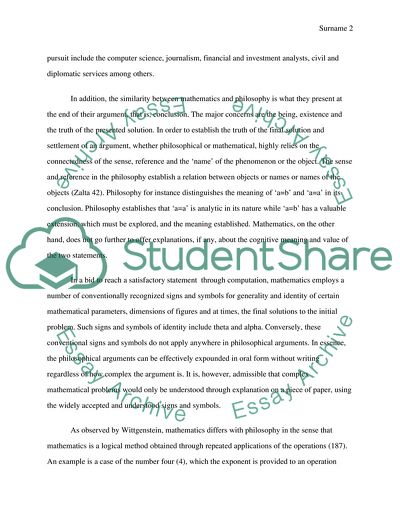Cite this document
(The Similarity Between Philosophy and Mathematics Essay Example | Topics and Well Written Essays - 2250 words, n.d.)
The Similarity Between Philosophy and Mathematics Essay Example | Topics and Well Written Essays - 2250 words. https://studentshare.org/philosophy/1638642-the-similarity-between-philosophy-and-mathematics
The Similarity Between Philosophy and Mathematics Essay Example | Topics and Well Written Essays - 2250 words. https://studentshare.org/philosophy/1638642-the-similarity-between-philosophy-and-mathematics
(The Similarity Between Philosophy and Mathematics Essay Example | Topics and Well Written Essays - 2250 Words)
The Similarity Between Philosophy and Mathematics Essay Example | Topics and Well Written Essays - 2250 Words. https://studentshare.org/philosophy/1638642-the-similarity-between-philosophy-and-mathematics.
The Similarity Between Philosophy and Mathematics Essay Example | Topics and Well Written Essays - 2250 Words. https://studentshare.org/philosophy/1638642-the-similarity-between-philosophy-and-mathematics.
“The Similarity Between Philosophy and Mathematics Essay Example | Topics and Well Written Essays - 2250 Words”. https://studentshare.org/philosophy/1638642-the-similarity-between-philosophy-and-mathematics.


